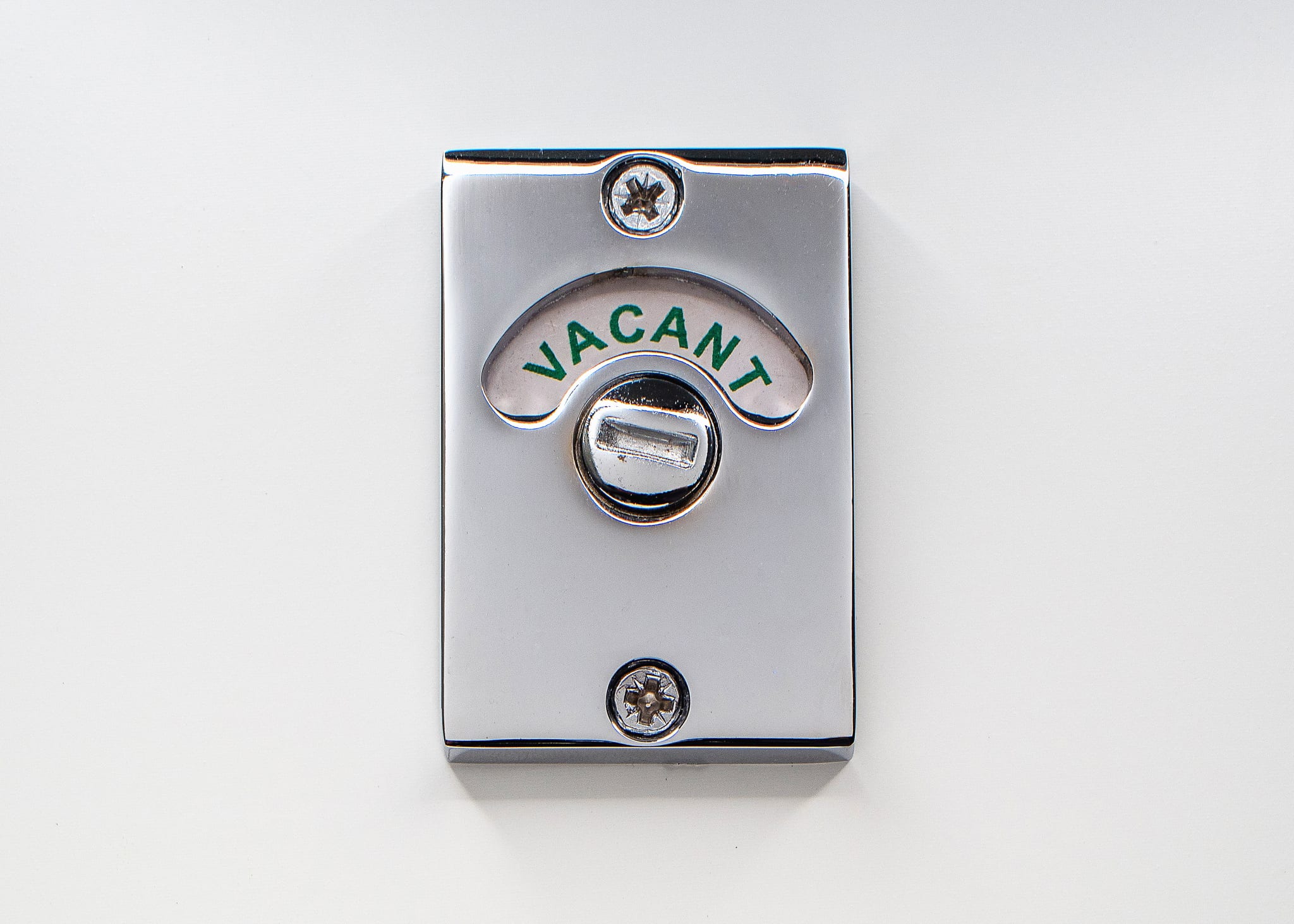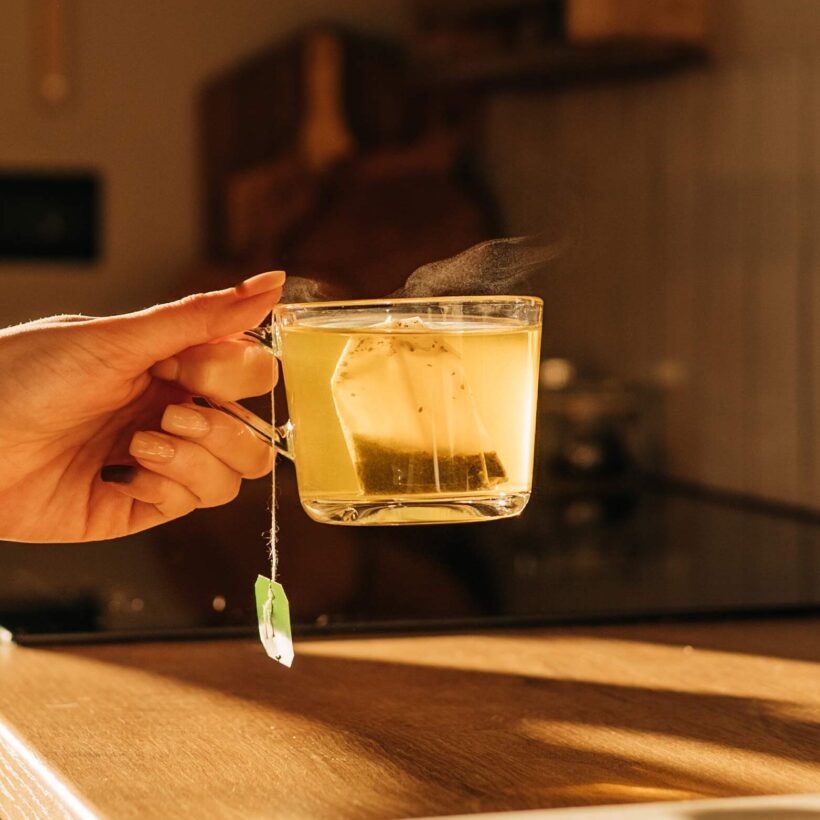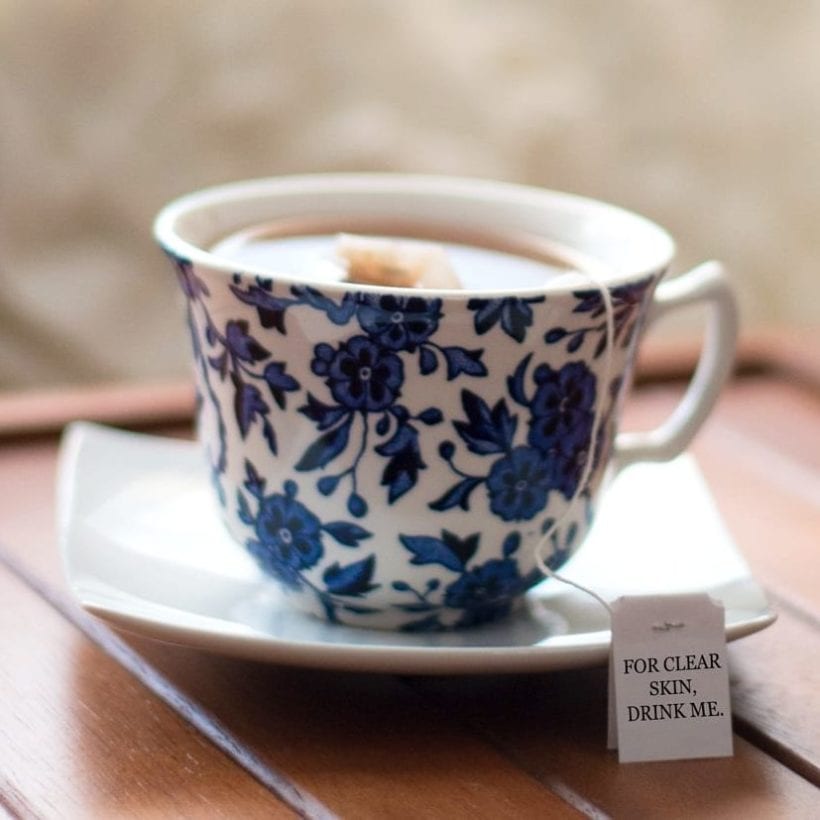In the morning, right before bed, in the middle of the night, after your first coffee, in the middle of the meeting, and while sitting in traffic. These are only a few of the instances when the urge to pee strikes. Frequent urination is sometimes perfectly normal, while other times, it could signal something else is haywire, according to a registered dietician, nutritionist and chiropractor Anthony Crifase. He says most people will urinate between six and seven times every 24 hours. So, if you’re constantly making many more trips to the restroom than this, here’s how to decode what your bladder may be trying to tell you.
You recently started drinking more water
So this one’s a no-brainer, but will your body ever adjust to the new water intake? “When you begin increasing the number of liquids you drink — especially at first — you will pee more. But I find that just like everything else, your body will likely adjust,” says registered dietitian and nutritionist Laura Burak. Against popular belief, there’s no such thing as a small bladder or having smaller bladder capacity (typically, the average healthy person can hold about two cups of urine).
The possible fix: You can “train” your bladder to gradually increase the amount of urine you can hold comfortably before emptying the tank, according to Harvard Health Publishing.
You feel anxious
Everyone goes through periods where their minds are heavy (and these days, it’s easy to find a reason). If you are suffering from intense anxiety, you may be peeing out of angst. This is worrisome since it can put a strain on your kidneys. “Anxiety often causes our muscles to tense up. When our muscles tense up, they cause tension around the bladder and lead to an increase in urinary urgency,” says registered dietitian and nutritionist Leah Kaufman.
The possible fix: When you can, taking time to process your worries through journaling, meditation or exercise can help decrease these visits.
You’re a fan of caffeine
“Caffeine is a diuretic. What this means is that these substances increase the amount of urine your body produced in order to help filter out the water and sodium from your body. If you consume a lot of caffeine over time, it can contribute to bladder instability and lead to overall bladder weakness,” says Kaufman.
The possible fix: “It’s possible if you’re drinking coffee without supplementing your day with plain water, you’re dehydrated. Which, in turn, might make you reach for even more coffee,” says Burak. Make sure that you’re consuming enough water in addition to your caffeinated beverages so you stay hydrated.

It hurts when you urinate
For women who are experiencing a stinging sensation when they pee, it’s time to see a doctor ASAP since Burak says chances are high you’re suffering from a urinary tract infection (UTI). Most of the time when this happens, you will feel like you have to run to the toilet, only to barely have anything come out. And when it does, it’s uncomfortable and painful. “Patients with chronic UTIs should make sure they drink more water to urinate more and flush out any bacteria, and they can take supplements like cranberry juice in liquid or pill form to help prevent them. The compounds in cranberries can possibly discourage bacteria from sticking to the walls of the urinary tract and therefore prophylactically prevent UTIs from occurring or recurring,” she says.
The possible fix: “Due to our anatomy, they are common, but easily treated with antibiotics and the need to pee every five minutes will resolve quickly,” says Burak.
You eat a lot of protein
If in the past few weeks, you’ve started to add more protein to your diet in an effort to lose weight or build stamina for your workouts, your urination habits could change, too. As Moskovitz explains, high-protein foods offer many benefits — amino acids, iron and zinc — but they also have a similar effect on our body as diuretics. “Our kidneys can only process a certain amount of protein at a time. When we consume excess protein, it causes a protein buildup in the kidneys which leads to an increase in acid production. This can lead to an increase in urination,” says Kaufman.
The possible fix: If you’re worried, consult with a professional (like a nutritionist) to find out exactly how much protein you need and if you’re getting too much or too little for your body.
You may have onset diabetes
Though this isn’t the case for everyone, one main underlying cause of sudden frequent urination is the onset of diabetes. “When there is too much sugar in your bloodstream (when either you become insulin resistant or stop making insulin altogether depending on the type of diabetes), your kidneys have to work harder to process the sugar and thus they eliminate it through more frequent urinating. Also, this can cause dehydration, which then increases thirst and fluid intake, and therefore this causes even more urination,” says Burak.
The possible fix: If you have a family history of this illness, or you feel as if your bathroom visits have doubled overnight, it is worth checking in with your primary care provider for a blood test. “Once doctors make a diagnosis and treat the disease with the proper medications, however, this symptom usually resolves,” she reassures.
You might be pregnant
Around four weeks into your pregnancy, “the early pregnancy hormone hCG increases blood flow to your kidneys (where urine is produced), which can increase the need to pee,” says Burak. In addition, “as the baby grows, they may put pressure on your bladder,” added Kaufman.
The possible fix: Though it can be cumbersome, it’s nothing to worry about if the cause of your frequent urination is pregnancy. Definitely don’t reduce your liquid intake. Instead, try to make sure you completely empty your bladder every time you need to go to the bathroom and avoid drinking water right before you sleep.
We only recommend products we have independently researched, tested, and loved. If you purchase a product found through our links, Sunday Edit may earn an affiliate commission.








